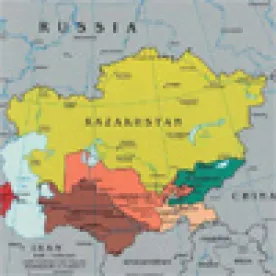Legalisation allows release from liability and legitimises the turnover of property.
The Law on Amnesty of Kazakhstan Citizens, Repatriates (Oralmans), and Individuals Having Kazakhstan Permanent Residence Permit in Connection with Legalisation of Property (the Legalisation Law) will take effect on 1 September 2014.
General Provisions
-
According to the Kazakhstan Ministry of Finance, this legalisation of property is being carried out to inject additional funds into the economy. There were two legalisation procedures in the past. In 2001, the legalisation resulted in more than USD480 million being added to the economy, and, in 2006–2007, the legalisation yielded approximately USD6.8 billion.
-
In addition to the Legalisation Law, another law will take effect on 1 September 2014: the Kazakhstan Law on Introduction of Amendments and Additions to Certain Kazakhstan Legislative Acts on the Matters of Amnesty of Kazakhstan Citizens, Repatriates (Oralmans), and Individuals Having Kazakhstan Permanent Residence Permit in Connection with Legalisation of Property. That law will introduce changes to the Civil, Budget, and Tax Codes.
-
The Legalisation Law should be read in the context of other means undertaken by the government that are aimed at further developing the economy and business, e.g., recent changes to legislation to improve the investment climate and the announced tax amnesty covering fines and interest penalties for small and medium-sized businesses accrued as of 1 October 2014.
Definition of Legalisation
-
“Legalisation” is defined as a procedure whereby the state recognises the rights to property ejected from the lawful economic turnover with the purpose of concealment of income and/or property where the right to the property was not duly formalised/documented or property that was formalised/documented to an inappropriate person.
-
The legalisation period is from 1 September 2014 through 31 December 2015.
-
The list of property that may be legalised is broad and includes money, securities, and immovable property.
Release from Liability and Taxation
-
The key provision of the Legalisation Law is the release (amnesty) from criminal and administrative liability in respect of crimes/offenses set out in the Legalisation Law (see below).
-
Importantly, respective cases/files cannot be initiated (and those initiated must be closed) if they are related to crimes/offenses set out in the Legalisation Law. Moreover, legalisation-related information is confidential, and there is a prohibition on conducting procedural actions against a person based on information received in the course of the legalisation campaign.
-
Property legalised under the Legalisation Law is exempt from individual income tax.
Limitations
Not all property can be legalised under the Legalisation Law. The law contains a number of exceptions, which are not clearly drafted, opening room for interpretation. First, the following property cannot be legalised:
-
Property where the right to the property is being challenged in court (It is not clear what this provision means. For instance, if there is a criminal case that results in certain property being confiscated from a given person, it is unclear whether it can be legalised.)
-
Property where the rights to the property cannot be granted under Kazakhstan’s laws (Again, because the Legalisation Law lists specific types of property that can be legalised, it is not clear which types of property are covered by this limitation.)
-
Money received under loan agreements (This limitation is probably introduced to avoid doubt.)
-
Property that should be transferred to the state
-
Residential and nonresidential premises in immovable objects completed at the expense of the state budget (within the anticrisis measures, with the purpose of stability of social and economic development of Kazakhstan)
Second, committing certain crimes/offenses is not covered in the Legalisation Law. Only a limited number of crimes/offenses are subject to release under the Legalisation Law (the Exempt Violations). These include the following:
-
Illegal entrepreneurship
-
Illegal banking activity
-
Failure to return funds in local or foreign currency from abroad
-
Deliberate bankruptcy
-
Evasion from payment of taxes and/or other mandatory payments to the state budget
-
Understatement of taxes and other mandatory payments to the state budget
-
Illegal construction
Third, if property was received as a result of committing a crime specifically mentioned in the Legalisation Law, then the property cannot be legalised in any case. Such crimes include, for instance, crimes against the person, fundamentals of the constitutional regime, judgment, and enforcement of punishments as well as the illegal use of insider information and manipulations on the securities market. Notably, this list also includes crimes against “ownership,” which, according to the Criminal Code, include such crimes as theft, fraud, and violation of authorship and/or associated rights. It is not clear why the Legalisation Law introduces this additional list of crimes because the release will only apply to the specific circle of Exempt Violations.
Fourth, there is an “entry into force” rule. In other words, the Legalisation Law does not apply if a court order has already been adopted prior to the effective date of the Legalisation Law. The list of crimes/offenses covered by this rule generally matches the Exempt Violations list, with few exceptions.
Legalisation Fee
-
The legalisation fee is 10% of
-
the amount of money withdrawn from the savings account or transferred to another account; or
-
the acquisition value/appraisal value of property located outside of Kazakhstan.
-
There are two important issues here: First, if the money was not withdrawn (transferred) from the savings account, then the legalisation fee is not due. Note that the money is considered legalised when it is deposited (transferred) to the savings account. Second, the legalisation fee is not payable in relation to property located in Kazakhstan.
Procedure
-
The Legalisation Law includes different procedures for legalisation of money and other property.
-
Legalisation of property (except money) is carried out by filing a set of documents with the commission, which is established within the local executive authorities (local governor’s office), and the tax body. The application will be considered within 30 days. If the requirements are met, the commission and the tax body will issue a legalisation act, transfer the act to the respective applicant, and include information in the legalisation register. Property (except money) is considered legalised from the date of the legalisation act. The appraisal of property is carried out in accordance with the appraisal legislation of Kazakhstan.
-
Legalisation of money is carried out as follows. The applicant opens a savings account with a commercial bank in Kazakhstan or JSC Kazpost. Money is considered to be legalised when it is deposited (transferred) to this savings account. Money is subject to legalisation when the following two conditions are met:
-
The money (in local currency and/or foreign currency) is deposited (transferred) to the savings account within the legalisation term
-
Money must be kept at the savings account for at least 60 calendar months (i.e., five years), except if the money is used for the following purposes:
-
Investment in the Kazakhstan economy by way of acquisition of privatisation assets (in accordance with the procedure established by the Kazakhstan government); assets of the group of companies of JSC Welfare Fund Samruk-Kazyna, including shares in the course of the so-called “People’s IPO”; as well as IPOs of Kazakhstan state securities, notes of national management holdings, national companies, national development institutes, second-tier banks of Kazakhstan, and other securities placed in the Kazakhstan stock exchange
-
Withdrawal from the savings account or transfer to another account subject to withholding of the legalisation fee by the banks or JSC Kazpost
-
-




 />i
/>i

